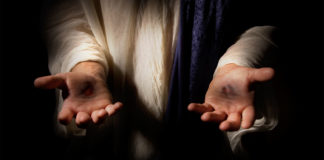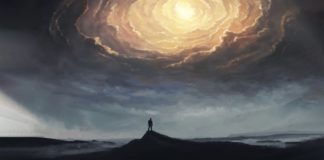What do you do when you reach the end of love?
When I'm tired I can't love! Many times I have lived this reality and even assessed it as the exact end of love.
Where do we get the Light from?
Let the one who walks in the dark, who has no light, trust in the name of the Lord and rely on their God. – Isaiah 50:10
The surprise of this very night
''The ground of a certain rich man yielded an abundant harvest. He thought to himself, ‘What shall I do? I have no place to store my crops.’ Then he said, ‘This is what I’ll do. I will tear down my barns and build bigger ones, and there I will store my surplus grain. And I’ll say to myself, 'You have plenty of grain...
Lewis and the Lion
We have become so accustomed to authors and researchers being highly specialised in niche fields, that we are tempted to be skeptical of works they produce outside of their accepted field of expertise. It seems bizarre therefore that an author of children's literature could also be a professor at Oxford and Cambridge and an expert on the medieval era.
“I do believe; help me overcome my unbelief!”
I was born into an Adventist family. This meant feeling that pretty much everything I knew, including my religious tradition, was the sole truth.
COVID-19: Life in the shadow of death
I am not an expert on the phenomenon of death. But like all of us, I have to live in its shadow, and watch the restlessness and greed it causes. The same gloomy reports that circle the planet also reach me. I feel especially conscious of this as COVID-19 claims its first victims in my country.
Celebrating transformative faith
I don’t remember ever doubting that, beyond the limits of the ensnaring, visible world, there is another reality that can only be accessed by those who speak the language of faith.
COVID-19: Second thoughts on Doomsday
Although they are constantly improving their preparedness for crises and disasters, modern societies find themselves powerless in the face of a growing threat: transnational crises.
Beyond the fish and the fishing line
"Like slavery and apartheid, poverty is not natural. It is man-made and it can be overcome and eradicated by the actions of human beings… And overcoming poverty is not a gesture of charity. It is an act of justice." (Nelson Mandela)[1]
Don’t say I haven’t told you so…
During my adolescence, a Swiss author, Erich von Daniken, made waves with his theories about extra-terrestrial influences on early mankind. His most important book was called Memories of the Future. Of course, his ideas have no support today, but the idiom remains: memories of the future. Something from the past says something about what is to come.
The source of motivation
Motivation is more than simply having the desire to wake up each morning with enthusiasm and a zest for life.
All or nothing
By the middle of the 17th century, German Protestantism had long ceased to be a burning torch. Accepted by the nobility and the populace, it had become an ecclesiastical, secular, and politicised institution like all the others. In the night of alienation, God brought from the ashes the light of a new dawn.
Divergence and confluence
My daughter recently posted on our family website a photo of our niece celebrating while holding a beautiful fresh rose, tall and slim, just like her. I looked at the photo for a long time then wrote under it: "Two vines." I pondered some more then wrote, "One of these vines knows why it is here on Earth, but I wonder if the...
The darker side of our world
The world of the homeless is the darker side of our world. It is inhabited by vagrants, drug addicts, and the powerless. This world has its own rules, customs, pleasures, and pains, but lacks meaning and peace. And those who enter this world struggle to leave it.
Loving your neighbour | “And who is my neighbour?”
“And Who Is My Neighbour?” asked a Jewish teacher of the Law when Jesus Christ told him that eternal life entails observing two commandments: to love God and to love one’s neighbour.


























